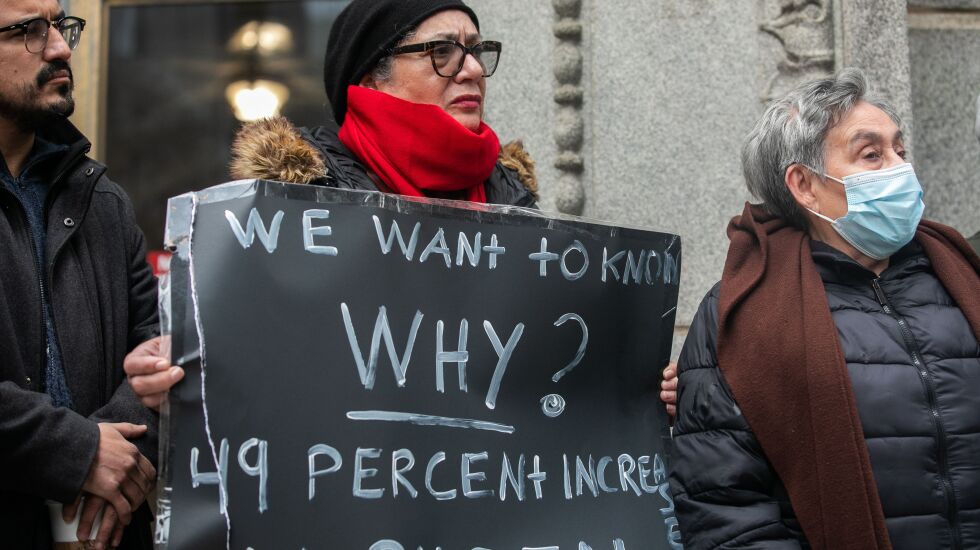
There is a mismatch between David Orr’s views on reforms for Cook County’s property tax system and the accompanying photograph of protesting Pilsen residents. The tax increases many Pilsen residents experienced are likely the result of how Cook County Assessor Fritz Kaegi’s assessment model works in gentrifying communities. Orr does not address this.
Our home assessment increased 37% because our modest old home is in an area of Irving Park with a relatively high median home price. This price reflects vigorous sales of rehabbed and new construction homes. It pushed our small un-rehabbed home into the assessor’s “high” price category for Jefferson Township, where assessments start at $380,000. The assessments of many old housing stock homes have been inflated in this way.
SEND LETTERS TO: letters@suntimes.com. We want to hear from our readers. To be considered for publication, letters must include your full name, your neighborhood or hometown and a phone number for verification purposes. Letters should be a maximum of approximately 375 words.
The purpose of the price categories is to prevent under-assessment of expensive homes. The result for my family is a 45% increase in taxes. The assessor needs to examine how his model works in gentrifying communities. Good reforms can have unintended consequences. It’s best to recognize them early.
Lisa Walker, Irving Park
Lawmakers have a solution for 21st century online hate
Illinois legislators have an opportunity in the next few weeks to, again, position Illinois at the national forefront of anti-cyberhate laws. The Civil Liability for Doxing Act (HB 2954), sponsored by Rep. Jennifer Gong-Gershowitz and Sen. Julie Morrison, will give doxing victims the ability to finally hold their attacker accountable. The bill was unanimously approved by the Illinois House in March, and it is now up to the Senate to follow suit.
The internet has become a space where extremism festers. Bad actors take advantage of new technologies to crowdsource hate and fear. Doxing — the act of intentionally publishing someone’s personally identifiable information, without their consent and with the intent to cause them harm — is the latest form of severe online harassment.
The problem is widespread. The Anti-Defamation League’s most recent report on online hate and harassment showed 41% of respondents experienced it, with 27% experiencing severe online harassment. This is just one of the many reasons the bill enjoys support from a broad coalition of advocacy organizations.
Illinois deserves a victim-centric solution. Two doxing victims — one a domestic abuse victim doxed by her former partner, one a business owner who was doxed after announcing her bakery would host a family-friendly drag brunch — testified in the House about the horror they and other victims have experienced. They have been stalked, harassed, intimidated, received death threats, lost jobs and even been assaulted, and have suffered incredible emotional and physical distress that impacts the way they and their families live.
While their attackers have faced some criminal consequences, victims suffer but have no real voice.
The proposed law is a tailored approach for victims to demonstrate the impact of their attacker’s actions and seek civil recourse, including monetary damages. The bill is modeled after legislation recently signed into law in Oregon and Nevada.
Illinois has always been a leader in fighting hate. But we risk falling behind if our laws are not updated to reflect 21st century hate.
The Illinois Senate should follow the House and send this bill to Gov. J.B. Pritzker’s desk for his signature.
David Goldenberg, regional director, ADL Midwest
Vickie Smith, president/CEO, Illinois Coalition Against Domestic Violence







